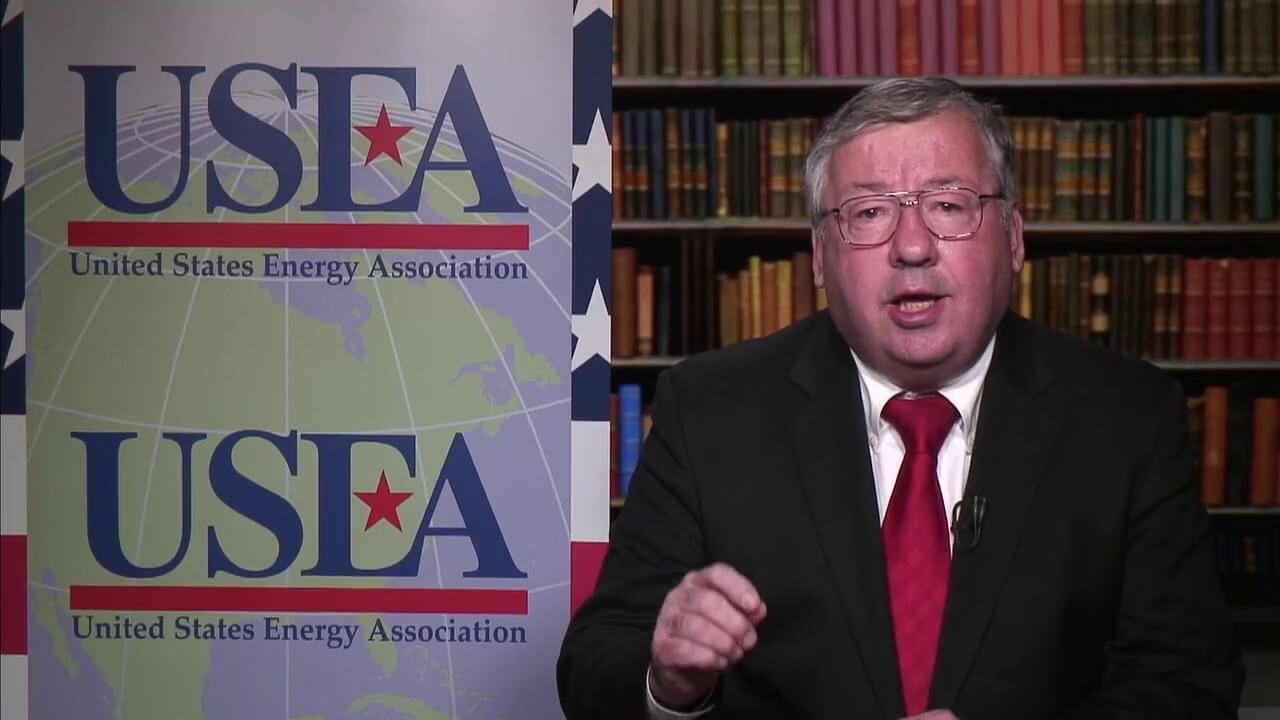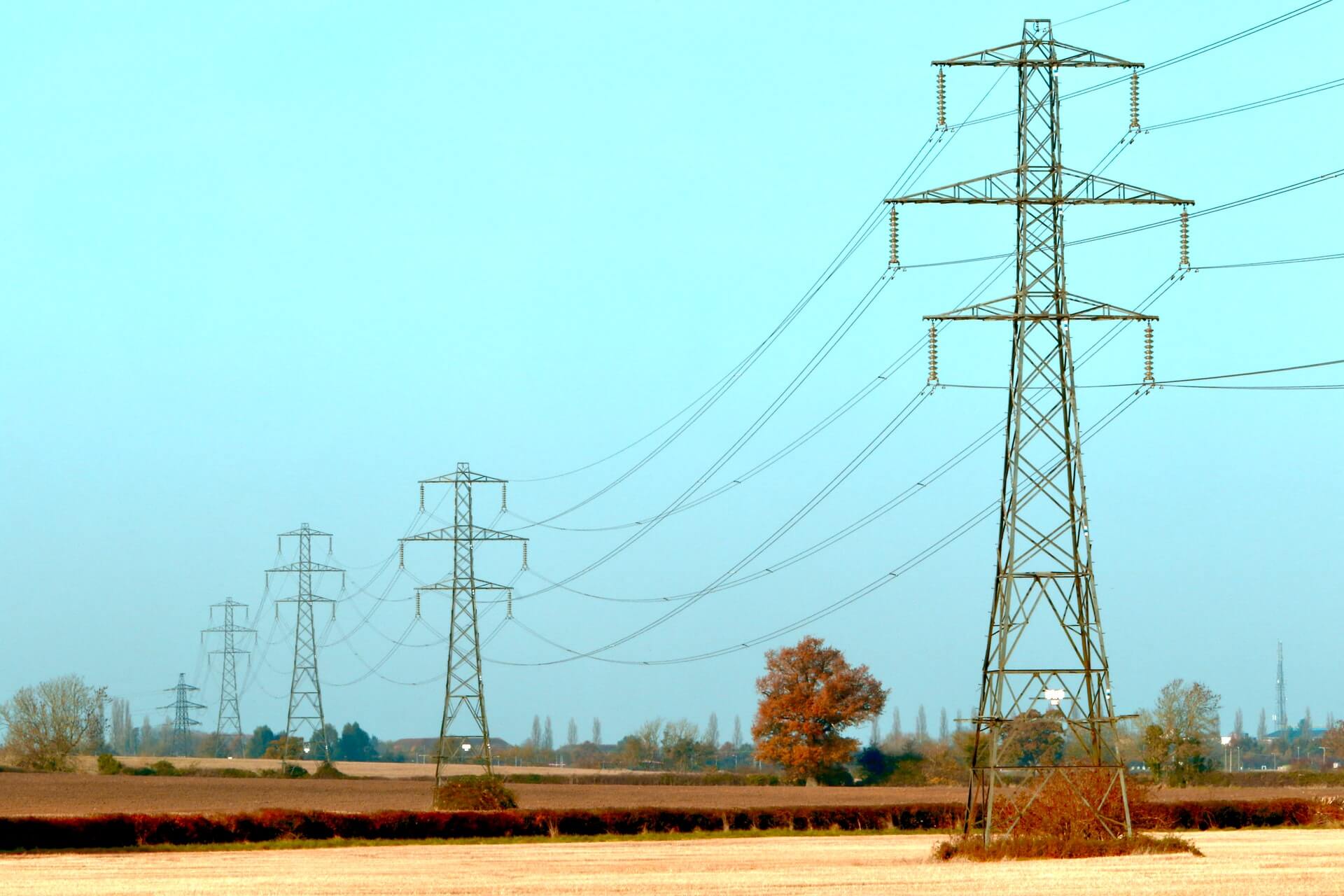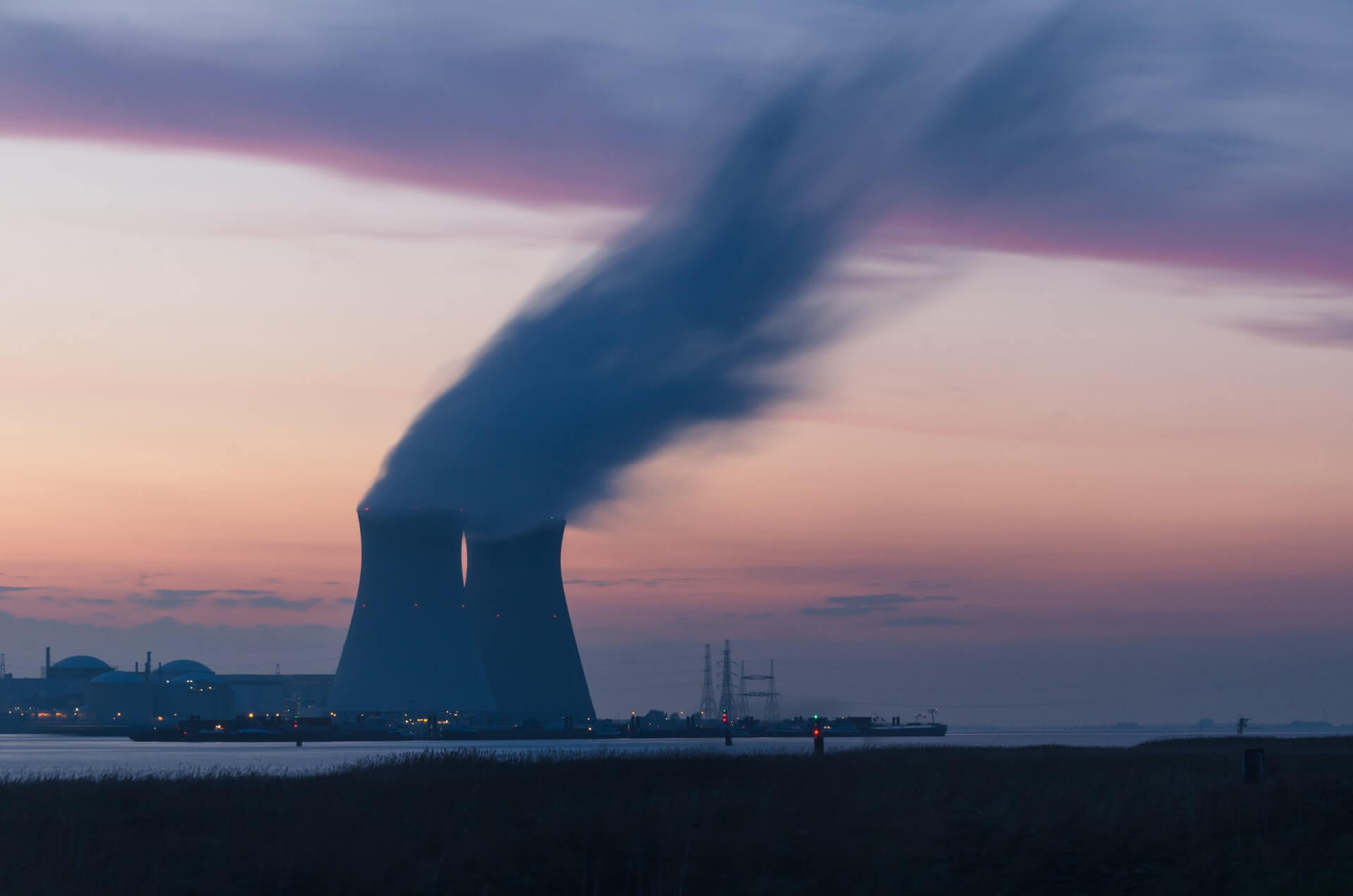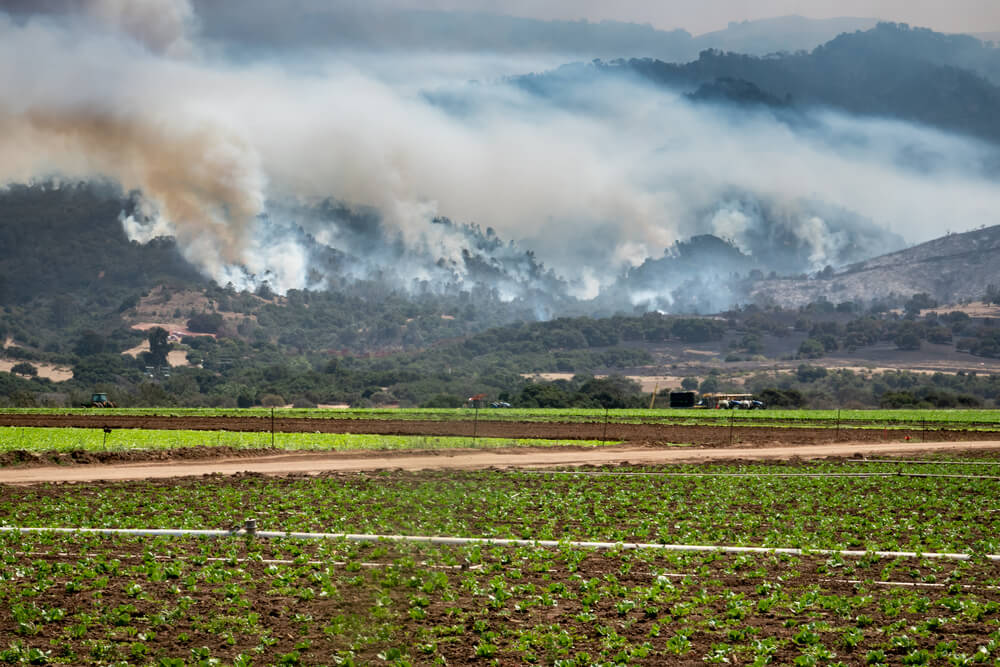The Great Adventure of a Life in Journalism

News Analysis With a Sense of Humor


The latest report from the United Nations Intergovernmental Panel on Climate Change gives humanity a simple directive: Get a grip on greenhouse gas emissions or the dear old planet won’t be the dear old planet we have known and loved down through the millennia.
Sounds simple, huh? Like wearing a face mask or getting a COVID-19 vaccine shot.
That is the trouble. Everyone will have their own science and won’t hesitate to inflict it on anyone who disagrees, whether it is verified or not.
Social nagging is about to become a national pastime. I can hear it now: “Why do you drive a gasoline car? You know, your fire pit is a carbon source.” Or “Did you think about the carbon consequences when you booked your vacation in Europe?”
How ghastly the moral superiority of the anti-carbon warriors will be! I can imagine them saying “I can’t imagine why people don’t buy electric cars. We have had one for three years.” Or “Your oil-heated house is a pollution source. We have installed solar rooftop panels. Passive solar houses should be mandated by the government.”
Remember the anti-smoking crusaders? I am afraid you haven’t seen anything yet. The very real climate threat is going to unleash a whole new tribe of social scolds.
Electric utilities are in the crosshairs and there will be no end to their vilification. Watch out for the environmental experts, who once urged the use of coal over nuclear, to take charge of the future with some other counterproductive policy nostrum.
All that said, I believe if we don’t get on top of the greenhouse gas emissions problem, we soon will be wondering, as Robert Frost wrote, “Some say the world will end in fire,/ Some say in ice.” The way it is going, I say the world will end in devastating floods and heatwaves, worsening droughts, and accelerating sea-level rise.
The UN’s climate change panel has declared a clear and present danger. It is a threat that has been growing and largely laughed off over 50 years. I, for one, first heard of the idea of global warming in 1970, when it seemed very remote and a little crazy. It is neither remote nor crazy now. It is at hand, and it should affect a lot of thinking.
In the near term, common sense would have us ship our natural gas abroad so that China, India, and many other countries stop burning coal; not as the anti-carbon warrior would have us close down our production. The best longer-term hope is more science on carbon capture and nuclear power. It is foolish to worry about nuclear waste lasting 10,000 years when, if we keep on the current climate trajectory, life won’t exist in the nearer future on planet Earth.
The fact is that while the science of climate change is well understood, the solutions aren’t. For example, those who would denounce natural gas, which is far less polluting than coal, don’t know the lifecycle costs of the two advocated alternatives, wind and solar.
To build a windmill, you need a large concrete base and a steel tower, both of which are manufactured through carbon-intensive processes. At the end of the life of a turbine, about 25 years, the giant blades, which are mostly made of carbon fiber-reinforced fiberglass, will be disposed of in landfills. The blades can’t be recycled, unlike the steel towers and other components.
Both the manufacture and disposal of solar cells have considerable environmental impact. The impact in making them is known, but the impact of their disposal in landfills isn’t known.
Going forward, the need is to know the science, encourage innovation, and not bow to culture activists who would wish their solutions on the rest of us. When I was a boy, asbestos was the miracle substance, recommended for inclusion in everything because it was fire-resistant. If you didn’t use asbestos, the fire alarmists came down on you.
The moral? Beware of simple solutions to complex problems.

Barry Worthington, who was executive director of the U.S. Energy Association for 31 years, died prematurely on Aug. 14, 2020. This is a remembrance of him, a dear friend, which I wrote at the time.
Barry Worthington was the most extraordinary ordinary man. Unpretentious, self-effacing, decent to the extreme, casual, and abundantly capable. He left a mark on electric utilities worldwide; and here, in the United States, on hundreds of energy denizens from senators to cabinet secretaries, and CEOs of companies crammed into the Fortune 500. He was, simply, exemplary — at once everyman and unique.
He stood on more podiums than many political candidates and delivered profound speeches in a conversational, clubby way. He walked with potentates and political savants from across the world and talked with them unaffectedly, as though he was leaning over a neighbor’s fence.
Barry’s travels were the stuff of awe and legend: off to Beijing, Dubai or Rio de Janeiro today, and back tomorrow. If there were a prize for speed of travel turnaround, Barry would have won it over and over.
He told me that he had promised his wife Louise, a school principal, he would always get back as fast as possible. I think it was otherwise: I think home was where Barry’s heart was and he would rather be home in Laytonsville, Maryland than dining in Paris or sightseeing in Patagonia. If he had a place he preferred more than Laytonsville, it was the family condominium in Rehoboth Beach, Delaware.
Barry, for all the travel and international importance, was quintessentially a family man. He, Louise, Barry and Kerry, his now adult children, loved doing things together, quite simple, very American things like summering at the beach, going to Hard Rock Cafés, and visiting Disney theme parks.
He was, for 31 years until his so-untimely death at age 66, executive director of the United States Energy Association. Under his gentle direction, the USEA grew from a moribund organization on a sharp downward trajectory to a $10-million-a-year, globe-circling player.
The USEA is a nonpartisan, non-lobbying organization, dating back to 1935, that promotes all forms of energy, based on the fundamental creed that energy is good for people. As its executive director, Barry was good for people, too.
Barry was educated at Penn State University and the University of Houston. He sought a career in energy at a time when the energy crisis appeared as though it would last forever and bend the future.
Houston Power & Lighting Company hired Barry as a trainee executive. He caught the eye of its legendary chairman, Don D. Jordan, and the two kept in touch. Barry often quoted Jordan in conversation.
Barry was offered a job with the nonprofit Thomas Alva Edison Institute. “I took it because it was twice the pay, and we were young and broke,” Barry told me.
The institute was foundering, and Barry accepted an offer to head the USEA which was itself a financial basket case. It had made a lot of money in 1974, when it hosted the World Energy Conference in Detroit, but that windfall was dwindling when Barry arrived. “It had expenses of $250,000 a year and income of $200,000,” Barry told me at lunch last January.
Something had to be done and quiet, unassuming Barry was the man to do it.
There was no way the USEA’s modest dues structure would support a revival. Products and services had to be added. Barry increased the number of revenue meetings, briefings and events, and boosted the role of industry briefings. As the publisher and editor in chief of The Energy Daily, I was able to introduce media breakfasts at the USEA.
Barry increased the usefulness of the USEA to its members. Although it had a special relationship with electricity, oil and natural gas companies found its services and contact matrix useful. The USEA’s work on carbon capture, utilization and storage has been pioneering.
When Barry brought in the United States Agency for International Development, the USEA found an unexpected mission: It began creative and cost-effective collaborations, pairing American electric utilities with those in the former Soviet Union to teach them best practices and establish a commercial basis. Sometimes these have included oil companies, but the bulk of the 80 “partnerships” have been in electricity and ranged from ratemaking to plant operation to fuel optimization. In eastern Europe, the first measure was to boost the cycles from 48.6 to conform with the western European standard of 50.
Today, these partnerships are a brilliant feature of foreign policy and have extended to South Asia and Africa.
A friend to many, Barry Worthington, has left us, but his light is not extinguished: It shines brightly across the world and in the hearts of those of us lucky to have known him. I was so favored for more than 30 years.

We all know that sinking feeling when the lights flicker and go out. If bad weather has been forecast, the utility has probably sent you advance warning that there could be outages. You should have a flashlight or two handy, fuel the car, charge your cell phone and other electronic devices, take a shower, and fill all the containers you can with water. If it is winter, put extra blankets on beds and pray that the power stays on.
Disaster struck mid-February in Texas. Uri, a freak and deadly winter storm, froze the state’s power grid. It lasted an unusually long time: five terrible days.
There was chaos in Texas, including more than 150 deaths. The suffering was severe. Paula Gold-Williams, president and CEO of San Antonio-based CPS Energy, told a recent United States Energy Association (USEA) press briefing on resilience that the deep freeze was an equal opportunity disabler: Every generating source was affected. “There were no villains,” she said.
Uri wasn’t just a Texas tragedy, but also a sharp warning to the electric utility industry across the country to look to their preparedness, and to take steps to mitigate damage from cyberattacks and aberrant, extreme weather.
This is known as resilience. It is the North Star of gas and electric utility companies. They all have resilience as their goal.
But it is an elusive one, hard to quantify and one that is, by its nature, always a moving target.
This industry-wide struggle to improve resilience comes at a time when three forces are colliding, all of them impacting the electric utilities: more extreme weather; sophisticated, malicious cyberattacks; and new demands for electricity.
On the latter rests the future of smart cities, electrified transportation, autonomous vehicles, delivery drones, and even electric air taxis. The coming automation of everything — from robotic hospital beds to data mining — assumes a steady and uninterrupted supply of electricity.
The modern world is electric and modern cataclysm is electric failure.
Richard Mroz, a past president of the New Jersey Board of Public Utilities, who had to deal with the havoc of Superstorm Sandy in 2012, said at the USEA press briefing, “All our expectations about our critical infrastructure, particularly our electric grid, have increased over time. We expect much more of it.”
Gold-Williams said extreme cold and extreme heat, as in Texas this year, put special pressures on the system. She said the future is a partnership with customers, and that they must understand that there are costs associated with upgrading the system and improving resilience. Currently, CPS Energy is implementing post-Uri changes, she said.
Joseph Fiksel, professor emeritus of systems engineering at Ohio State University, said at the USEA briefing that the U.S. electric system “performs at an extraordinary level of capacity” compared to other parts of the world. He said utilities must rethink how they design their systems to recognize the huge number of calamities around the world that have affected the industry.
A keen observer of the electric utility world, Morgan O’Brien, executive chairman of Anterix, a company that is helping utilities move to private broadband networks, believes communications are the vital link. He told me, “Resilience for utilities is the time in which and the means by which service is restored after ‘bad things’ happen, be they weather events of malicious meddling. Low-cost and ubiquitous sensors connected by wireless broadband technologies are the instruments of resiliency for the modern grid. No network is so robust that failure is impossible, but a network enabled by broadband conductivity uses technology to measure the occurrence of damage and to speed the restoration of service.”
Neighborhood microgrids, fast and durable communications, diversity of generation, undergrounding critical lines, storage, and cyber alertness are part of the resilience-seeking future.
As more is asked of electricity, resilience becomes a byword for keeping the fabric of the modern world intact. Or at least repairing it fast when it tears.

In its first two decades of service, the Douglas DC-3 — maybe the most amazing, safe, and hardworking aircraft ever built — was denounced in folk legend as wildly unsafe. It was branded a flying coffin by those who didn’t know the data.
The myth that it wasn’t airworthy matured into an out-and-out lie. In fact, the DC-3 was the workhorse which launched modern passenger aviation.
The DC-3 was saved by growing aviation literacy in the public. Can nuclear literacy save nuclear power, one of the greatest tools in containing global warming? I believe it can. Literacy trumps myth and superstition.
While nuclear power has comparisons with the venerable DC-3, it is far more important than any single airplane. Those who turn their backs on nuclear power — so needed as climate change accelerates – are akin to those who without knowledge were turning their backs on passenger aviation in 1935.
Today’s major public argument against nuclear power is that it leaves behind radioactive materials — lumped together as nuclear waste – which will be radioactive for 10,000 years, about twice recorded human history.
This argument conjures up images of a monster, breaking out of its repository and marching the earth, laying waste to whatever stands in its way — a nuclear blob from a science fiction movie.
Truth is, in about 200 years, most high-level nuclear waste will have decayed into something less radioactively aggressive. In the first 30 years, it gets less toxic and more manageable.
As this explanation by William Reville, the eminent, emeritus professor of biochemistry at University College Cork, published in the Irish Times, explains succinctly, “ The intense radioactivity reflects the preponderance of short-lived radioisotopes that are disintegrating quickly.
“This high rate of nuclear decay means the level of radioactivity declines quickly – the radioactivity of spent nuclear fuel reduces to 10-20 percent of its initial activity within six months of its removal from the reactor and within a few decades, the radioactivity reduces by a further factor of two. Radioactivity danger is largely gone within 100 years and within a few thousand years, the stored spent fuel is little more radioactive than the uranium ore that first came out of the ground to be fabricated into new fuel rods.”
Despite this science, when I advocate nuclear, which I have done for a long time, people roll their eyes and say, “What about the waste?” The waste does need to be stored safely, but it decays to a safe state quite quickly.
The most agonized-over nuclear material is the transuranic plutonium. Yes, it will last thousands of years, but it is easily shielded because it is an alpha emitter: It can’t penetrate human skin and can be blocked with a piece of notepaper. Natural uranium, found in rocks nearly everywhere, is an emitter, as is thorium, found in conjunction with rare earths. Radiation is everywhere. It isn’t the devil’s incarnation.
Those facing the climate crisis tend to shy away from nuclear and advocate only wind and solar. Little thought is given to the waste that these low-density energy sources are themselves going to produce.
Wind will create a huge volume of physical waste from the disposal of carbon-fiber turbine blades. These don’t recycle, unlike the steel towers on which the turbines rest. Eventually, tens of millions of tons of solar panels will make their way to landfills.
If you want to fret about waste — and you should — look to the garbage that is crowding the landfills, especially plastic which doesn’t break down. Look to the billions of tons of junk that is making its way into the oceans, killing marine life, and shudder.
The earth can take a lot of nuclear waste from power plants, advanced medicine, and reactors aboard navy ships and spacecraft. But can it take much more of the alternative?
Aviation literacy saved aviation from myth, even after disasters. Myth is a dangerous force when it is the foundation of policy.
If you want a good, safe myth, go with the tooth fairy.

The big story isn’t in Washington. It’s out West. It’s the drought.
After the fires have gone out (there are 80), the crops have failed, the herds have been culled, and the home lawns and gardens have shriveled up, the re-engineering of the West will have to begin. Many things will have to change. Technology will be asked to handle some changes.
The West must innovate both socially and technologically because you can’t move nearly 80 million people to greener lands.
There are no easy fixes for the drought that has eight Western states – Montana, Idaho, Washington, Oregon, California, Nevada, Arizona, and New Mexico — by the throat. This is a calamity with a capital C, but the enormity of the problems has hardly dawned in the East — even when the smoke from the western fires reaches all the way to New York City.
The problem here, I am sorry to say, is my fellow denizens in the Fourth Estate. There is a national disaster that may progress to a national tragedy with people losing their farms, businesses, and homes, and yet — especially on the networks — politics is all.
What is happening in the West is analogous to what happened during the Arab oil embargo, the effects of which have lasted more than two decades. The crisis had been building – there was a gasoline shortage in the summer of 1973 before the embargo – and it didn’t end until fracking technology liberated hydrocarbons in tight formations.
The West has been struggling with its water issues since the 1940s. Some mighty civil engineering work with canals and dams has helped alleviate them, or at least has postponed the reckoning.
That day of reckoning is now at hand: Eight states, and possibly more, will have to make major adjustments — not just to get through this summer, but for years and years. The jig is up; there is no quick fix.
All the water impoundments are below their historic low levels and the summer is far from over. The West’s megadrought, which began in 2000, hasn’t run its course, according to experts. The rains won’t come miraculously next year; the crucial snowpack that sustains the whole region with fresh water and hydropower, may not come either.
Revolutionary changes will be needed, especially in California. Farmers will have to look at the ways the Israelis have reduced water use through drip-feed irrigation and drought-resistant crops. They may have to stop growing thirsty crops like alfalfa.
Wastewater will have to be recycled, used again and again; first for farms and gardens and later, as the filtering technology improves, in homes. Orange County is already a leader here.
New, covered aqueducts will have to be built to convey more efficiently the limited supplies from the rivers that sustain much of the West, the Colorado and the Columbia.
Finally, there is desalination. Everyone talks about it as though it is a mature technology ready to be hooked up, bought off the shelf, so to speak. Alas, it isn’t so.
The primary technology for desalination, used in places like the Arabian Gulf, is reverse osmosis: Seawater is driven through membranes and the potable water is captured, leaving all kinds of impurities in the rejected water, as well as the salt. This brine can’t be returned to the ocean: It forms destructive plumes that kill all life, including that on the seafloor.
So, to make a dent in the water needs of California, there would have to be a major desalination industry with new ways of dispersing the brine. Further, the desalination process consumes a lot of electrical energy, something that California doesn’t have, especially when there is sparse snowpack.
California dreamin’ will need to be of a new lifestyle. This story is California big.

It wasn’t an especially sunny day last Sunday but, in my home, there was light aplenty and lightness, too.
The joy came not from the normal charges and countercharges on Sunday morning television. Instead, it was the flight into near space of Richard Branson, the show-off billionaire tycoon, aboard his own Virgin Galactic spaceship.
It was thrilling and yet, in terms of space flight, it was old hat. Not much happened there. But it was “a great get” and it aired on many news channels.
In talk show parlance a “get” is a hard-to-secure guest, and a “great get” is someone much sought after, like a political figure in controversial circumstances or simply a celebrity in convoluted love trouble.
The Branson show on Sunday was, to my mind, a “great get.”
I would submit that what made the highly televised event so compelling wasn’t that we saw Branson, swashbuckling business adventurer and balloon pilot, go weightless for a few minutes, but that we saw what engineering genius, which is well-funded, can do.
The back story is instructive, too. It is that in an ideal situation, the government pioneers a technology but private industry exploits and brings it to good fruition. Space technology has belonged to government, but it is booming now that the entrepreneurs have taken it up. It is technology transfer working. It is what has driven the continuing technological revolution.
Sure, Branson’s flight was an advertisement for himself, a show mounted by a P.T. Barnum-like impresario. That doesn’t mean it wasn’t something of a tonic for the world, so beset by negative news. It was thrilling, transcendental, and a shared adventure.
Branson made his first fortune selling record albums by mail order and then in Virgin record shops: Linda Gasparello, the journalist and my wife, says Branson went from rock to rocket. The name Virgin, now often associated with about 400 companies which he controls, dates back to that early period when an employee said that Branson and his staff were virgins in business. He liked it and it stuck, and he is virginal no more.
Branson’s great triumph may have been his battle with British Airways to establish Virgin Atlantic Airways. British Airways left no dirty trick untried to hobble the startup, but Branson weaponized public sentiment to win the day. I have a handwritten letter from Branson telling me that although he would love to attend a conference I was organizing, he was too busy doing deals to come. Writing a personal letter said something about the man.
The passengers-in-space race is enhanced by the fun narrative that there are three billionaires — Branson, Jeff Bezos of Amazon, and Elon Musk of Tesla — competing to commercialize space travel. Bezos is planning to lift off in his personally funded spacecraft on July 20. Musk — who is furthest ahead in the commercialization of space, of which passenger flight will be only a part — changed the storyline breakfasting with Branson before his flight. (I wouldn’t want to eat before such a flight. Strapped into his seat, I thought Branson looked a little green but dry.)
As a former private pilot, I have always thought there is a spiritual dimension to flight, any kind of flight, in that it has been the dream of humans — since Homo erectus first set eyes on birds — to fly. We, the favored, live in a time when not only can we fly, but we can also go into space or watch others go there.
To me, the great moment Sunday was the mothership letting the space plane go and the powering up of its jet. This was demanding, dangerous, and invigorating.
The star flying across the sky was neither Branson nor his money but superb, brilliant engineering, buttressed by the great designs of men like Burt Rutan whose talent is everywhere on display in advanced aircraft.
Aviation has its own de facto hymn. It is “High Flight” by the British-American Spitfire pilot John Gillespie Magee, who joined the Royal Canadian Air Force because the United States hasn’t yet entered the war, and who was killed in a mid-air collision over Britain in 1941. The poem begins, “Oh! I have slipped the surly bonds of Earth/And danced the skies on laughter-silvered wings” and it ends with these lines, “And, while with silent, lifting mind I’ve trod/The high untrespassed sanctity of space./Put out my hand and touched the face of God.”
Thanks to Richard Branson, space traveler, I slipped the surly bonds of political talk last Sunday morning and soared.

Millions of Americans appear to be echoing the words of the Johnny Paycheck song “Take This Job and Shove It.” This is a sentiment that is changing the work scene, the way we work, and the future of work.
The workers of America are shuffling the deck in a way that has never happened before. It is accentuating an acute labor shortage.
I receive lists of job openings every day and the common denominator seems to be that you must show up at a place of business. Among the big and seemingly frantic employers are FedEx, Walmart, and Amazon. Warehouse workers and delivery drivers are the most sought-after employees.
To overcome the labor shortage, wages are rising and adding to the rising inflation — although what part of that rise is labor cost isn’t clear. Other factors are pandemic-induced supply chain disruptions, a tightening of food flow from California and other Western states, and the acute housing shortage. The economy is rebalancing; and so are workers, reassessing their lives and making changes.
There has been a severe shortage of skilled workers for a long time. It has been felt almost everywhere from construction to electric line workers. It is just worse now, exacerbated by immigration restrictions and workers who have joined the reshuffle.
During the lockdown, millions of individuals have assessed what they do and, apparently, found it wanting.
America’s workforce isn’t returning to the jobs that they held before the lockdown. Some are trying new things; others are demanding changes in the workplace. There is a demand for more remote working. The rat race is running short of willing rats.
Commuting seems to be the one big no-no. People in the major work hubs like New York, Washington, Chicago, and San Francisco have sampled the joys and the failings of working from home, and commuting has lost.
I know people who used to spend four or five hours every day getting to work and back home in all these cities. Sitting in a traffic jam is neither creative nor the best use of human life, these people are now saying.
In the movie “Network,” Peter Finch bellows, “I’m as mad as hell, and I’m not going to take this anymore!” That is the new sentiment towards rigid travel and rigid work schedules. Working from home has taken people up the hill and shown them the valley, and they have liked the valley.
Other workers, particularly at the lower end of the work scale, have wondered whether they wouldn’t be happier doing something else now that they have had time to ponder. A friend of mine’s daughter who was a professional waiter in Florida now works for a printer. She has found she gets a more dependable income, better hours, and that incalculable: a happier work environment.
I love small business, and I believe it to be the essential force for innovation and job creation. But it is also where petty boss-tyrants flourish. Lousy, egomaniacal employers aren’t hard to find, especially in the restaurant business.
When I worked as a waiter in New York, between journalism jobs, I knew waiters who dreamed of the great restaurant where the tips are generous and, above all, the “patron is nice.” Unseen, there is a lot of cussing and pressure in any restaurant and job security is unknown.
Enforced downtime has caused many to wonder whether they are even in the right line of work; whether the money, prestige, or social recognition that may have gone with their old job was worth it.
For others, the gig economy has beckoned, where the employer has been cut out. Particularly, this is true of young people in communications and related work. Geeks are a hot item and can contract directly. But others, from landscape gardeners to plumbers, are going gig. The downside is there are no benefits, from Social Security deductions to pensions and health care. Society is lagging in recognizing this new arena of work.
Peculiarly, we aren’t at full employment. Unemployment is hovering around 5.9 percent and has gone up slightly as the summer has progressed. This raises the question of how many of the formerly employed are now in the gig economy, skewing the figures.
We are in what is, in effect, a post-war recovery. Traditionally, that is a time for social readjustment, for old bonds to be loosed, and for new energy to be released. Is it time to sack the boss?

In this, the Information Age, truth was supposed to be the great product of the times. Spread at the speed of light, and majestically transparent, the world of irrefutable truth was supposed to be available at the click of a key.
The internet was to be like “Guinness World Records,” conceived by Sir Hugh Beaver, managing director of the Guinness Brewery, when he missed a shot while bird hunting in Ireland in 1951. This resulted in an argument between him and his hosts about the fastest game bird in Europe, the golden plover (which he missed) or the red grouse. The idea for a reference book which would settle that sort of thing was born — and which could help promote Guinness and settle barroom disputes.
The first edition was published as “The Guinness Book of Records” in 1955 and was an instant bestseller. You might have thought there was a thirst for truth as well as beer.
Despite the Supreme Court’s repeated rejection of any suggestion that the presidential election of 2020 was fraudulent and that it wasn’t won by Joe Biden, the Republican governor of Texas, Greg Abbott, has called a rare special session of the Texas legislature to pass a restrictive voting package that will likely include the power for the legislature to overturn any election result it deems fraudulent.
This is happening across Republican-controlled states. They are ready to fix something big that isn’t broken.
Abbott has called the special session because the Texas legislature — thanks to the Democrats denying him quorum in a parliamentary procedure — didn’t get what amounts to a rollback of democracy in the regular session. Second time lucky.
What these Republicans are doing is equivalent to forcing men to wear blinders so they don’t stare at naked women on our streets, even though there are no naked women on our streets. Better be sure.
Behind all this refutation of truth is the Big Lie. It is promoted, cherished, and burnished by former President Donald Trump and those who swallowed his brand of fact-free ideology. The Big Lie is with us and will cast its shadow of pernicious doubt over future elections down through time. The loser will cry fraud and state lawmakers will, under the new scheme of things, be entitled to overturn election results, violating the will of the people to serve their own political goals.
Mark Twain wrote a short essay in 1880 entitled “On the Decay of the Art of Lying.” If Twain were alive today, he might be tempted to retitle his work “The Ascent of the Art of Lying.”
The extraordinary thing about the Big Lie is its blatancy; the fact that it has been found untrue by the courts and by every investigation, yet it rolls on like the Mississippi, unyielding to fact, unimpeded by truth.
The Big Lie is an avalanche of political desire over democratic fact. It introduces corrosive doubt where there is no justification. It is a virus in the body politic that may go dormant but won’t be eradicated. The host body, democracy, is weakened and the infection can flare at any time, triggered by political ambition.
Historically, there have been primary sources of information and tertiary sources of doubt or refutation. For example, some believed the oil companies were sitting on a gasoline substitute that would convert water to fuel. That is a falsehood that has been spread since the internal combustion engine created a need for gasoline. It was believed by a few conspiracy theorists and laughed off by most people.
When the fax machine came into being in the mid-1970s, there were those who thought that the Saudi Arabian regime would fall because information about liberal society was getting into the country. Instead, Saudi conservatism hardened and there was no great liberalization. Today Saudis are online and there is no uprising, no government in exile, no large expatriate community seeking change. Truth hasn’t overwhelmed belief.
It is an awful truism that people believe what they want to believe, even if that requires the suppression of logic and the overthrow of fact. Gradually all facts become suspect, and the lie fights hand to hand with the truth.
As newspaper people joke, “Don’t let the facts stand in the way of a good story.” Democracy isn’t a good story; it is the great story of human governance. And it is being subverted by lies.

Going to the border and harrumphing won’t solve the very real immigration problem, which pits our humanity against our sovereign entitlement to say what kind of people we are.
We are not alone in this struggle.
The world is on the move. Untold millions of people who live south of our border with Mexico want to move north. Equally untold millions who live in Africa would like to move to Europe; and millions in eastern Europe want to live in western Europe.
From the Indian subcontinent, millions would like to move to Europe, specifically to Britain. Millions of East Asians have their eyes set on Australia.
Within these geographic areas, people also are on the move. Millions from Venezuela have flooded their neighboring countries. Likewise in Africa, where war and famine are ever-present, people try and walk to a marginally better future in another country. In the Middle East, Jordan and Lebanon are flooded with refugees first from Palestine, then from Iraq and Syria.
As The Economist pointed out recently, a slum in Spain is incalculably superior to a slum in Kenya.
The drivers for migration are poverty, violence, crop failure, and political collapse. And persecution, ethnic and religious; for example, the Rohingya in Myanmar have sought refuge in Bangladesh.
The goal of the migrant is the same worldwide: A better, safer life.
The political price paid by the stable democracies continues to be huge. It played a role in Donald Trump’s election as president and will play a role in the next presidential election, whether Trump runs or not. It was the great driver for Brexit and Britain’s seeming self-harming. It has driven the move of Hungary, under Viktor Orban, to autocracy.
It is hard to stop people who have nothing to lose from crossing a frontier if they can. But they aren’t the only migrants. Some, a small number, are opportunists. These are the migrants who overstay student visas, manipulate qualifications for residence, and willfully circumvent the law or contract so-called green card marriages.
But they aren’t what the border crisis is about — any more than it is what the overloaded boats crossing the Mediterranean Sea is about. It is the physical manifestation of desperation.
Because the migration problem is so complex – human problems are almost by definition complex— it isn’t a matter of resolution so much as management. We want, for example, immigrants with high-tech skills, but we are worried about the impact of millions of desperate peasants walking across the deserts.
Now a new driver of migration has opened: global warming. The heat and drought hitting the U.S. West Coast is also hitting Central America and will affect livability.
Adding to the complexity of the immigration conundrum is the labor shortage. Construction depends on immigrant labor, farming on contract labor, and slaughterhouses and chicken processors can’t stay open without immigrants to do the unappealing work.
One small step forward would be a sensible work permit.
It seems to me that the wall — Trump’s wall – isn’t a bad thing. It is a declaration, a symbol. It won’t deter desperate people and it won’t end smuggling. The latter is going to get worse with drones and even autonomous aircraft that can bring their lethal cargoes deep into the United States.
While there is an insatiable market for drugs here, smuggling will continue and even increase. And while that is so, lawlessness south of the border will accelerate.
Sadly, despite Vice President Kamala Harris’s statements, we aren’t going to repair the countries to our south overnight. But we might look to repairing our drug policy, seeing if that can be adjusted to take the profit out of the trade. Except for the gradual, local legalization of marijuana, we haven’t contemplated drug management, short of prohibition, in a century. A new look is due.
There is no single policy that is going to solve the human misery south of the border which drives so many to risk their lives or, through love, to send their children north.
Therefore immigration policy will never be a total, sweeping thing, but rather an ad hoc affair: We need some immigrants, we don’t want others; we have big hearts, but we fear immigration that is unchecked.
We fear the political, cultural, and social change immigrants will bring, especially if they are of a common language and background. Pain in Central America is political torture in the United States.